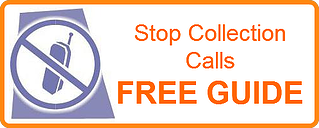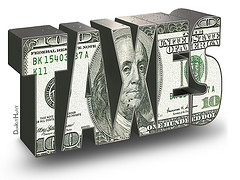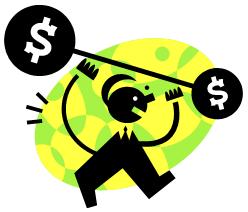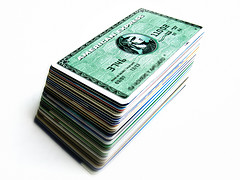 Choosing to enroll in a Debt Settlement program with Debt Relief NW or any other company can be a tough decision. Every day we get asked some of the same questions over and over again about the Debt Settlement program.
Choosing to enroll in a Debt Settlement program with Debt Relief NW or any other company can be a tough decision. Every day we get asked some of the same questions over and over again about the Debt Settlement program.
Below I have answered the top 5 most common Debt Settlement question to help you in making this important and life changing decision.
When will Debt Relief start negotiating my debts?
Once you have enrolled in the program, your creditors will be notified, and the process will begin. Your debts will be resolved as funds become available through your savings plan.
Will my creditors continue to contact me?
The original creditor retains the right to contact you, until such time as the debt has been transferred to a 3rd party for collection efforts. Because you may still receive phone calls from the creditors, we will provide you with the tools you need to handle those calls. Your creditors can also contact you by mail. If you have questions regarding any correspondence you receive, you should immediately contact your Solutions Specialist. They will handle all of your creditors and collectors on your behalf. 
Do all of my creditors have to be included in the Debt Settlement program?
No. We will handle only those debts that you want to include in the program. Many people retain one credit account for emergency use. Discuss your situation with your Solutions Specialist.
How long will my Debt Settlement program last?
This depends upon the amount you can save monthly and how much debt you are have. At Debt Relief, we offer programs that can fit within any budget and can eliminate your debt in as little as 18 months. However, we will work with you to create a program that specifically address your needs and objectives.
Will I be able to get credit in the future?
Yes. When you have successfully finished the program, the debt you placed in our program will have a zero balance. Good cash flow and the ability to pay are what lenders look for. Clients are able to purchase homes, refinance and obtain credit cards, and re-establish their good credit rating.
Only you can know what is the best decision for you and your family. However, our Debt Solutions Specialist are here to answer all of your questions and help you decide if Debt Settlement is your best option or if there is another program that would work better for you.
Please submit your questions in the comments section below or simply give us a call!






 Picture it.....
Picture it..... The holiday season seems to be a season of excess. Eating too much pie or drinking too much eggnog is one thing. Charging too many gifts on your credit cards is another.
The holiday season seems to be a season of excess. Eating too much pie or drinking too much eggnog is one thing. Charging too many gifts on your credit cards is another.

 My spouse died. Am I responsible for paying off the debt?
My spouse died. Am I responsible for paying off the debt? Money is one of the topics couples fight about most often. Debt brought into marriage is an especially troublesome part of many couples’ money problems. Research shows that debt brought into marriage is the number one problem for newlyweds. Unfortunately, debt never rests, sleeps, or goes on vacation and as long as you have debt you will be in financial bondage.
Money is one of the topics couples fight about most often. Debt brought into marriage is an especially troublesome part of many couples’ money problems. Research shows that debt brought into marriage is the number one problem for newlyweds. Unfortunately, debt never rests, sleeps, or goes on vacation and as long as you have debt you will be in financial bondage.
 Some great New Credit Card Rules were passed last year. Here's what you need to know:
Some great New Credit Card Rules were passed last year. Here's what you need to know:

